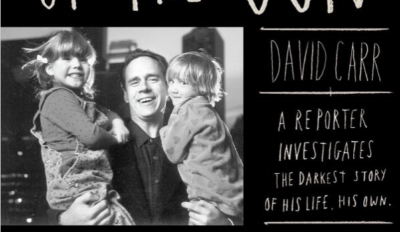Memoir: How to Write About Family

Writing a memoir is one of the best gifts you can give to your family, especially future generations. Think about it: How much do you really know about your grandmother? What about her grandmother— Do you even know the name of your grandmother's grandmother? If we're lucky, we'll know the basic outline of our ancestry but very few of us know the rich stories that make up the lives of our family members.
If you've ever been curious about your family's past, think of the future generations who also will be interested in their lives and yours, too. Knowing the paths of our ancestors helps us better navigate our own.
Writing a memoir isn't just a gift for posterity. It's also a gift for you presently. In the process of chronicling your family history or your own personal triumphs, you can discover recurring themes and universal truths that can guide the rest of your life.
But how do you do it? Where do you begin writing a memoir about your family? How do you make the mostly uneventful lives of your family members interesting? How do you catalog random events into one book? How do you tell the truth and not get sued?
In this guide, we'll answer all of those questions and more. Let's get started.
Here’s a list of 10 legal tips to remember when writing a memoir. Subscribe to receive this extra resource.
Brainstorm

When you're deciding who or what to chronicle in your memoir, remember this little fact: A memoir is not an entire autobiography. It captures one moment of your life. It may cover the span of several weeks, months, or years, but the totality of your life is so much bigger than what you can record in a single memoir.
Find a specific theme that you'd like to tackle in your memoir, such as the benefit of hard work or the trials and triumphs of parenthood.
Then find a moral to your memoir (that's right— morals aren't just for fables). Your memoir should also reflect a life lesson or universal truth that you or your family member discovered over the course of the events.
When trying to figure out where to begin with a family memoir, focus on a lesson that you've learned from your family. Who taught you that lesson? How did he or she learn that lesson? What's the story there? After exploring their story, then show how you applied that same lesson in your own life.
Be Honest
One of the hardest parts of telling your own story is being vulnerable. If you're accustomed to writing fiction, you know it's pretty easy to deposit different elements of your personality or your own history into the fictionalized story. Change a few details here and there, and no one will know that the protagonist in your sci-fi romance novel is based on you.
But in a memoir, everyone knows that your story is your story. It can be excruciating to look at yourself in black and white without flinching. There will be moments where you'll have to stop yourself from pushing the delete button. You'll definitely cringe. You'll want to justify your actions or soften the blow. But that doesn't make for honest storytelling, which is the only type of story your memoir reader wants to explore.
It can also be difficult to tell the truth when you're including the acts and deeds of others that you know, especially close family members. You may wish to shield them from criticism.
But don’t. Be honest with the most important (non-identifying) details and you’ll have a superior story.
How to Make the Boring Exciting
When I relay certain events about my life to others, I often get this response: Your life is so exciting. I could never write a story about my own life— it's so boring.
Here's the truth: My life is boring, too. Approximately 99 percent of my life is spent doing the same thing day in and day out. I don't write about that 99 percent, I focus on the 1 percent, and you should, too.
No one's life is exciting 100 percent of the time, but every one of us has a compelling story to tell. I've never met one person that I couldn't find an interesting story about, and you're not going to stump me.
With a memoir, you don't have to catalog every single day, week, or even year. You can skip over the boring parts to get to create a story that makes sense for your theme and moral.
Remember to Write Whole Characters
When we're looking at family members, we have a tendency to only see one part of them. You may know Rosalee as your grandma but you don't know her as the young woman who had an affair on her husband and ended up pregnant with another man's baby. If you limit your characterization to wise Grandma Rosalee, you won't have an accurate portrayal of young, naive Rosalee.
If you're going to tell an honest story, you must see and write Rosalee as a whole person— with faults— and not in the limited capacity of grandma.
What Happens if Your Family Threatens to Sue?

Are you afraid to write a memoir that involves family members because it may expose you to future litigation?
This idea stops a lot of would-be memoirists from sharing poignant stories.
If you've ever been threatened by a hotheaded family member who claims that you're defaming their character, remember that truth is always the best defense to defamation. If it's true, it's not defamation (which is hurting someone's reputation with a false statement of fact).
This is why it's so important to be completely honest in your memoirs, especially if you're bringing in the acts and deeds of others into your story.
You may also have to defend yourself against claims that you've invaded the privacy of your family members. If you're sharing sensitive information about family members that they don't want to become public, you can't use truth as a defense. In this case, and to avoid triggering certain family members altogether, it's best to explore one of the following options:
- You can write under an assumed name or pseudonym. This is the go-to option for those of us who want to tell our personal truths with exposing actual people in the process.
- Alter key details. Turn a brother into a cousin. Move from Poughkeepsie to Aurora. Transform a brunette into blonde. You can make changes to your memoir and throw sleuths off of the scent. But remember that switching out certain details can negatively affect your story and dilute your theme. Keep the changes superficial so as not to expose the secrets of your family members.
- Talk to a lawyer. They know more about the law than you or I do (unless you're actually a lawyer). It makes sense to consult with a lawyer before publishing a book with real names that can expose your family members to real embarrassment or potential legal issues.
Remember to treat your family members as you would like to be treated. Put yourself in their place. Give them the same dignity and respect that you want for yourself.
Hold on to Your Perspective
Others in your family will not remember events in the same way that you do. This can create tension. Be prepared.
You should tell the truth as you see it. Write the first draft without allowing self-doubt to have a voice. After your first draft is out of the way, start to edit with this caveat: You're writing from your perspective— not the perspective of your other family members. You don't have to alter your memories or storytelling to accommodate your mother's, brother's, aunt's, grandpa's feelings.
In fact, many authors don't ever share their memoirs with their family for obvious reasons. You're not obligated to do so and you may feel better if you don't. Just make sure that you're okay with what you've written and that it lines up to the truth as you see it.
Avoid Asking Your Family to Read Your Work
If you do share your memoir with your family, don't ask them to help you edit it.
Generally speaking, family members make poor editors. When you ask a family member to critique your work, it usually goes one of two ways:
1) They tell you what they think you want to hear because they don't want to hurt your feelings and they want to be supportive.
2) They have a negative emotional response and may tell you that your memoir is horrible simply because they're too close to the events in your story.
In the case of a memoir, it's almost impossible to get an objective reaction from your family members. If your perspective doesn't line up with their perspective, they'll think you're telling the story wrong and they'll judge you and your writing unfairly as a result.
You can't afford to have that happen.
Instead, get a professional editor to look over your work via a manuscript critique. This kind of critique focuses on the story as a whole, including plot structure, narrative voice, characterization, and pacing. This type of objective critique will help you clarify the theme and tell the best story possible. It can also safeguard against creating flat characters that don't honestly represent your family members.
Learn more about our manuscript critique services here.
Additional Resources
Before you go, check out these related posts on writing memoirs:
Here’s a list of 10 legal tips to remember when writing a memoir. Subscribe to receive this extra resource.




